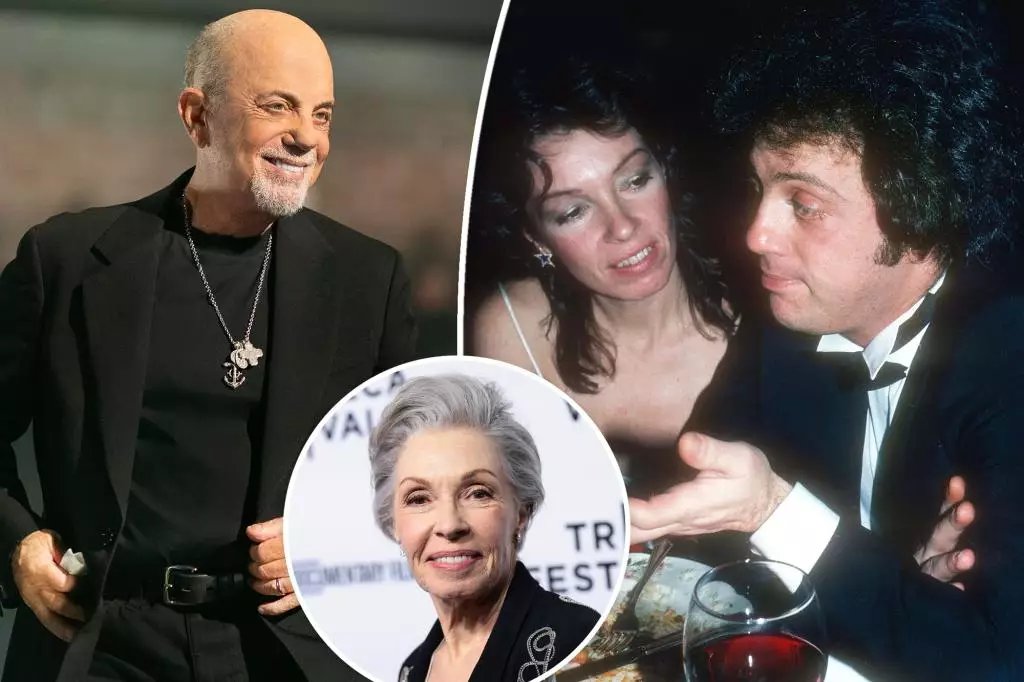Billy Joel, a name synonymous with poignant lyrics and unforgettable melodies, has had a career that spans decades, leaving an indelible mark on the music industry. Yet, behind the grand stages and chart-topping hits lies a personal life fraught with complexities, particularly regarding his relationships. In a recent revelation, his first wife, Elizabeth Weber, opened up about their current dynamic, shedding light on the layered history between the legendary musician and his former partner.
At the Tribeca Festival premiere of the documentary “Billy Joel: And So It Goes,” Weber candidly shared her perspective on their relationship post-divorce. “We’re friendly but not close,” she remarked, illustrating the boundaries that exist between ex-spouses who have shared both a life and tumultuous history. Her comments underline a crucial truth: even amidst the glitz of Hollywood and the music industry, relationships can undergo significant transformations over time.
Divorce and Distance: Navigating a New Normal
Weber’s straightforward admission that they are not particularly close is telling. It refers not only to the reality of their divorce but also reflects the emotional upheaval that often follows such separations, especially in the high-pressure environment surrounding rock ‘n’ roll. “I mean, we got divorced for a reason,” she emphasized, hinting at the complications that ultimately led to their split. Acknowledging her own subsequent marriages, Weber implies that the challenges of maintaining strong ties with ex-partners can exceed societal expectations.
Billy Joel himself has a history of relational tumult, having been married a total of four times, with each union contributing to his musical narrative. His most notable marriage to supermodel Christie Brinkley is a topic of enduring fascination, as is his bond with current wife, Alexis Roderick, with whom he tied the knot in 2015. Joel’s journey through marriage suggests a man seeking connection yet frequently facing the inevitable pitfalls that can accompany fame and artistry.
A Brush with Darkness
Notably, Joel’s struggle with mental health—specifically, his battles with guilt and depression following his affair with Weber—is a profound aspect of his storyline. The documentary supposedly delves into these darker moments in his life, including two suicide attempts that starkly illustrate the pain accompanying personal turmoil. It’s easy to overlook the human side of someone who seems immortalized by their talent, but this unveils a critical aspect of the artist’s psyche that resonates deeply with fans and observers alike.
In health-related news, Joel’s recent diagnosis of normal pressure hydrocephalus—a rare brain disorder—has raised additional concerns for fans. His absence from significant appearances, including the documentary premiere, signals a period where Joel may need to navigate both his physical health and his ongoing journey through personal relationships.
Musical Legacy and Emotional Resonance
The nuanced relationship between Weber and Joel contributes to a deeper understanding of his timeless classic “Just the Way You Are.” Originally written as a gift for her, the song stands as a testament to their connection despite its complex aftermath. Although Weber remarked that she is unsurprised by the song’s success, acknowledging its beauty and the myriad of covers that showcase its appeal, the shadow of their separation looms large over its legacy.
It’s intriguing to consider how Joel’s late-night band antics have occasionally turned the bitterness of their divorce into on-stage humor, with his drummer jokingly changing the lyrics to reflect the financial split post-divorce. Such actions suggest a coping mechanism—one rooted in humor and camaraderie—that allows artists to process their emotional truths while still resonating with their audience.
Women in the Shadow of Rock ‘n’ Roll
Weber’s observation regarding the treatment of women in the music industry offers a vital feminist critique of an often-glamorized reality. “Rock ‘n’ roll isn’t really good to women,” she states, a poignant acknowledgment of the gender disparities that persist even as women make strides in various realms. Her experiences with the media, which can be ruthless toward female figures associated with male artists, highlight the challenges women face in carving out their identities beyond their relationships.
In her candidness, Weber embodies a strength that contrasts sharply with the struggles faced by many women in similar positions. She emphasizes that while the public might have certain perceptions about her due to her past with Joel, she is focused on her own life and work, concluding that she cannot be “concerned about anything else.”
In this way, Weber not only reclaims her narrative but also contributes to an ongoing conversation about visibility, agency, and empowerment in an industry that often seeks to define artists through the lens of their male counterparts.

